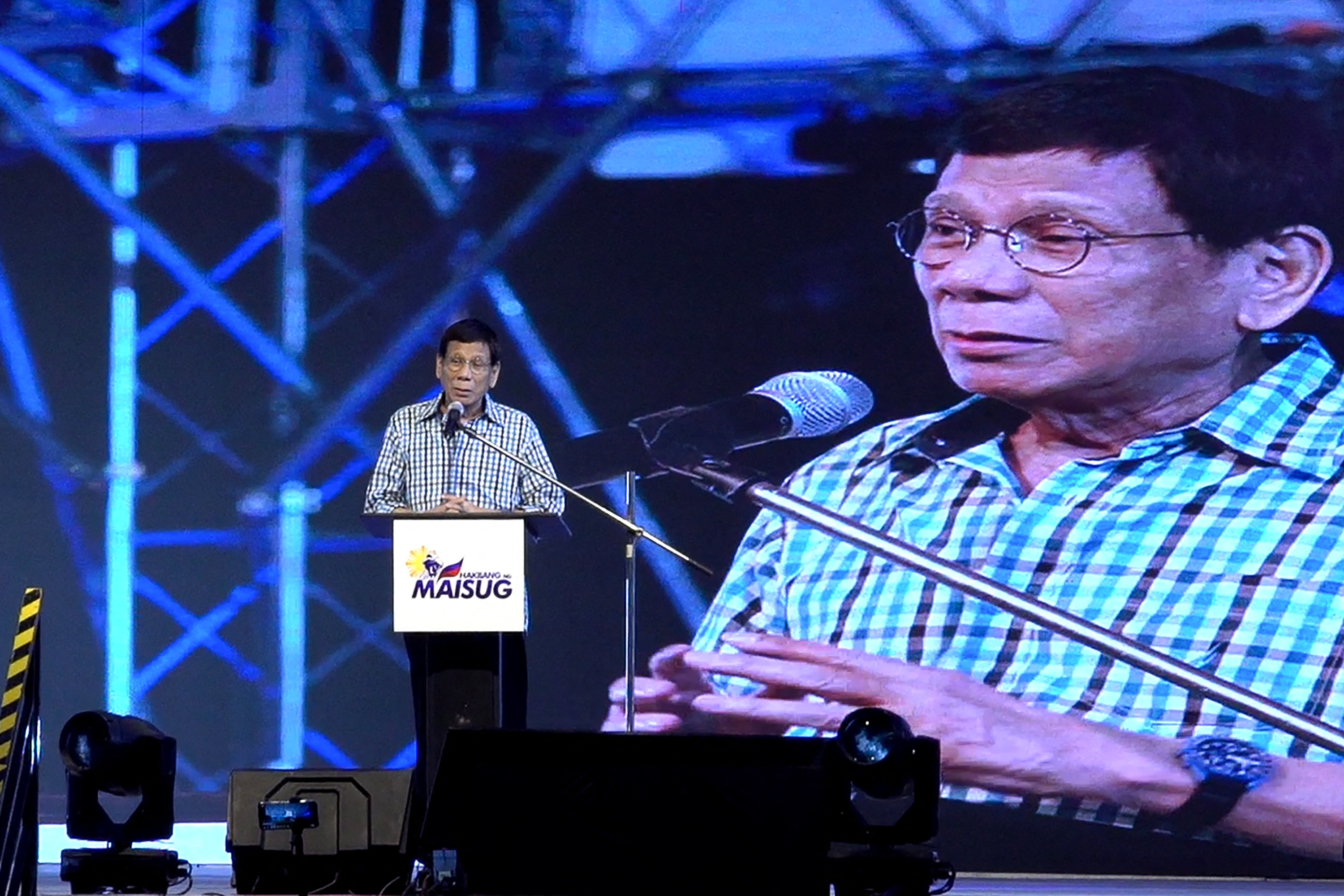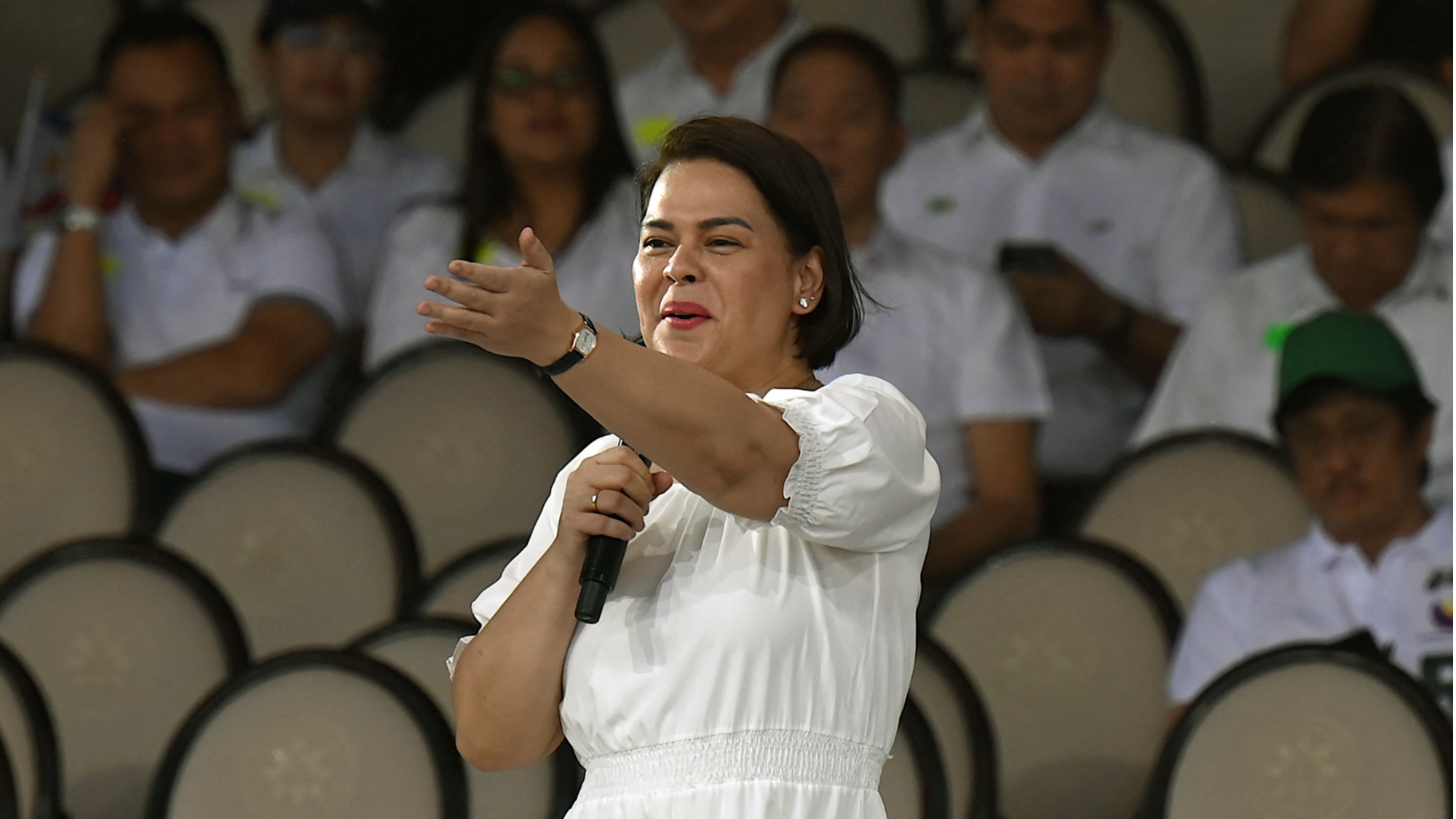
Former president and sons reported run in next May’s ‘referendum’ midterm elections could have long-term impact, analysts say
Former Philippine president Rodrigo Duterte and his two sons’ plan to run in the country’s senate election next May could pose a threat to the current President Ferdinand Marcos Jr administration as the midterm polls are widely viewed as a “referendum” on the incumbent leader, analysts said.
Vice-President Sara Duterte told Philippine reporters on June 25 that her father and two brothers — Paolo and Sebastian — “are raring to run”.
She made this announcement a few days after resigning from President Ferdinand Marcos Jr’s cabinet. Rodrigo, Paolo, and Sebastian Duterte have not released any statement yet regarding her announcement.
Jean Encinas-Franco, professor of political science at the University of the Philippines, said Filipinos tend to vote for members of political dynasties as the country has a “super weak” political party system. She cited the power of name recall and how this benefits the “Duterte brand”
Analysts noted how political dynasties continue to define Philippine politics.
ALSO READ: Former Philippine president Duterte plans senate run in 2025, says vice-president
Jean Encinas-Franco, professor of political science at the University of the Philippines, said Filipinos tend to vote for members of political dynasties as the country has a “super weak” political party system. She cited the power of name recall and how this benefits the “Duterte brand”.
“The ‘Duterte brand’ represents authenticity, malasakit (concern), the macho brand of politics that Filipinos like,” Encinas-Franco said.
Paolo Duterte currently represents the first district of the southern Philippine city of Davao in the lower house while Sebastian is the city’s mayor. Davao has long been a bailiwick of the Duterte family — both Rodrigo and Sara served as mayor while Paolo was elected as vice-mayor.
Anna Rosario Malindog-Uy, vice president for external affairs of the Asian Century Philippines Strategic Studies Institute, a Manila-based think tank, said Sara Duterte’s announcement “is a testament to the strategic acumen of the Duterte family”.
“It conveys to their supporters and the broader Filipino public that the Duterte family maintains a cohesive and unified stance on all significant national issues,” Malindog-Uy said.
ALSO READ: Philippine Vice-President Sara Duterte resigns as education secretary
She said the potential impact of this strategy is “significant” as it could reshape the Philippine political landscape.
Malindog-Uy said Sara Duterte’s resignation as education secretary “marks a definitive separation” between the Duterte and the Marcos dynasties, positioning the Dutertes as the leading political opposition.
Cleve Arguelles, president and CEO of public opinion pollsters WR Numero Research (WRN), said the result of the midterm election serves as a referendum on the performance of the sitting administration.

Arguelles said administration candidates usually have an advantage during this election as they have the machinery and the resources needed to succeed in the polls.
However, despite going against the administration, Arguelles said that the Duterte family has a big chance of getting elected, with Rodrigo even possibly topping the senatorial race.
ALSO READ: Philippine Vice-President Sara Duterte resigns from ruling party
Arguelles cited a WRN survey conducted last November to December that showed Rodrigo Duterte was a popular choice among respondents.
Arguelles was not surprised that members of the Duterte family would vie for the senate as it “is a very important political institution, especially for ensuring that you have access to national level politics”.
What he finds unusual, he said, is that they are all planning to run for the same post, at the same time.
However, this is not unusual in Philippine politics, especially among the current batch of senators — which include a mother and son tandem and two pairs of siblings.
The Duterte family are yet to file for their candidacy in the midterm elections that are slated for May 2025. The deadline for filing the certificate of candidacy is October 8
The Duterte family are yet to file for their candidacy in the midterm elections that are slated for May 2025. The deadline for filing the certificate of candidacy is October 8.
ALSO READ: Rift intensifies between Philippines president and Duterte family
The Philippine government has three branches — executive, legislative, and judicial — and operates under a system of checks and balances.
The Senate of the Philippines, which serves as the upper house of the bicameral legislature, comprises 24 senators elected in national elections conducted every three years.
Apart from passing laws, the Senate has the power to concur treaties, try impeachment cases, and hold public hearings that affect the national interest.
On June 25, Senator Imee Marcos — the head of the Senate’s Foreign Relations Committee — led an inquiry into a secret US military propaganda operation in the Philippines that aimed to discredit China’s vaccines at the height of the COVID-19 pandemic.
The inquiry was held after Reuters reported on June 14 how the Pentagon ran a clandestine influence campaign in 2020 and 2021 to sow doubt about Sinovac vaccines and other pandemic-related aid from China across the developing world.
ALSO READ: Philippine lawmakers seek probe into Pentagon anti-vax propaganda
The elder sister of the Philippine president, Imee Marcos said that the disinformation campaign against Sinovac — one of the more accessible vaccines at the time — discouraged Filipinos from getting vaccinated and left them more vulnerable to COVID-19, local media reported
The elder sister of the Philippine president, Imee Marcos said that the disinformation campaign against Sinovac — one of the more accessible vaccines at the time — discouraged Filipinos from getting vaccinated and left them more vulnerable to COVID-19, local media reported.
"Disinformation had its malign effects. The numbers are shocking. We're talking about millions, hundreds of thousands. This is no meager number. This is much worse than the body count and casualties of war," she said.
Malindog-Uy said the Philippine Senate investigation broadly made the Filipino public aware that the Pentagon's actions not only compromised their health and safety but also set a dangerous example for future global health crises and international cooperation.
“The outcome of this investigation could set a precedent for how the Philippines and other countries handle similar issues in the future,” she said.
READ MORE: COVID: Reuters reveals Pentagon's anti-vax campaign against China
“Depending on the findings, there could be long-term consequences for managing vaccine procurement and distribution, potentially leading to greater emphasis on transparency and independence in public health decisions,” she added.
Malindog-Uy said the Senate has a crucial role in shaping national policy, and this is why the outcome of the 2025 election race will have long-term implications for future elections, including the 2028 presidential race.
A Duterte win in 2025, can “bolster the Duterte family’s political capital and position them for more significant roles in the national political arena,” she added.


